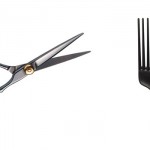Ghanaian-born rapper Blitz the Ambassador aims to bring American hip-hop back to its roots, away from the focus on bling-bling, hoes, fast cars, and money. Blitz’s music is far removed from the hip-hop usually played on radio airwaves. He rhymes about the struggle of people of the inner city without glorifying murder, drugs, and easy money.
As his recent album “Stereotype” and his most recent live version “Stereolive” reflect in name alone, Blitz tries to steer clear of the stereotype of the hip-hop emcee, the radio rapper, whose main goal seems to be selling the most records in the fastest way possible, regardless of content, artistry, and originality. Perhaps, this is why Blitz, after multiple attempts at getting picked up by a major label to no avail, decided to start his own record label Embassy MVMT (movement) to produce the type of hip-hop he wanted, regardless of what’s played on the radio and what the media wants the public to believe sells: sex, drugs, and money.
Though Blitz only came to America in his late teens to attend college, his musical influence before and after his move to the U.S. was heavily impacted by American funk music, jazz, and hip hop, especially that of Public Enemy. When listening to “Stereolive,” it is apparent how those musical genres helped form the music he performs today.
Reminiscent of American hip-hop group The Roots and their live band, who turned American hip-hop on its ear in their own right, Blitz’s twelve-piece band, the Embassy Ensemble, only further reflects the artist’s funk/jazz roots as well as his appreciation for his home continent’s Afrobeat music.
With the help of talented artists from various parts of the world, John Forte of the Fugees, Malian singer Balla Tounkara, and Sierra Leonian Bajah of the hip-hop Dry Eye Crew, Blitz seems to easily create hip-hop music that makes you bob your head, think, cry, and smile all at the same time!






